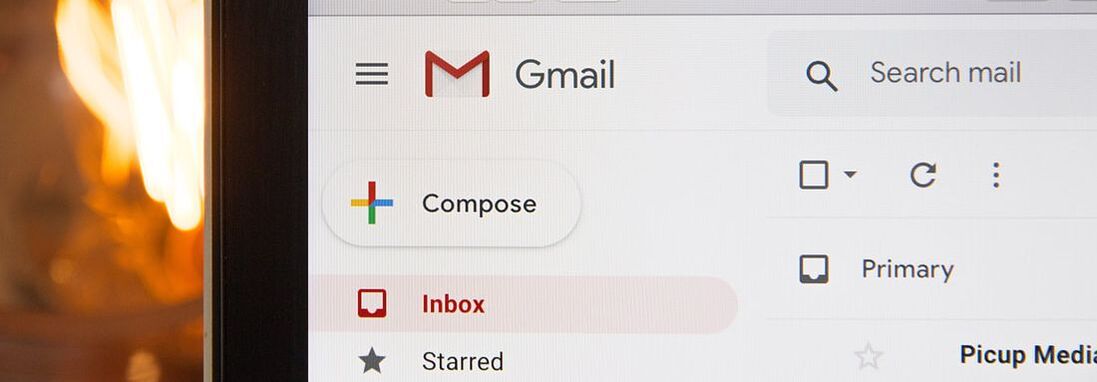|
Keyword research is a critical component of any successful SEO strategy. It involves identifying the keywords and phrases that your target audience is using to search for information about your products or services. By understanding these keywords, you can create content that is more likely to appear in search results and drive traffic to your website. In this blog post, we'll explore some tips for doing keyword research.
1. Start with a clear goal Before you begin your keyword research, it's important to have a clear goal in mind. Do you want to drive more traffic to your website, increase leads, or improve sales? Having a clear goal will help you focus your research and identify the most valuable keywords for your business. 2. Use a variety of tools There are many keyword research tools available, each with their own strengths and weaknesses. Some popular tools include Google Keyword Planner, SEMrush, Ahrefs, and Moz Keyword Explorer. Using a variety of tools can help you get a more complete picture of the keywords that your target audience is using. 3. Look at your competitors Analyzing the keywords that your competitors are targeting can provide valuable insights into your own keyword strategy. Use tools like SEMrush or Ahrefs to identify the keywords that your competitors are ranking for, and consider targeting those keywords as well. 4. Consider long-tail keywords Long-tail keywords are longer, more specific keyword phrases that are less competitive and more targeted to a specific audience. While they may have lower search volumes, they can often be easier to rank for and drive more qualified traffic to your website. 5. Analyze search intent Understanding the intent behind a search query is essential when it comes to keyword research. Are people searching for information, looking to make a purchase, or trying to find a local business? Analyzing search intent can help you identify the keywords that are most likely to drive conversions for your business. 6. Use keyword research to inform content creation Once you've identified your target keywords, use them to inform your content creation strategy. Incorporate these keywords into your blog posts, product pages, and other content to make it more likely to appear in search results. In conclusion, keyword research is a critical component of any successful SEO strategy. By starting with a clear goal, using a variety of tools, analyzing your competitors, considering long-tail keywords, analyzing search intent, and using your research to inform content creation, you can identify the keywords that are most likely to drive traffic and conversions for your business. __________________________________________ Janzen Marketing LLC www.janzenmarketingllc.com (785) 212-0945 [email protected] Follow us on social media! Facebook: https://www.facebook.com/janzenmarketing LinkedIn: https://www.linkedin.com/company/janzenmarketingllc Instagram: https://www.instagram.com/janzenmarketing/
0 Comments
Email marketing is one of the most effective ways to connect with your audience, build relationships, and drive sales. However, writing a successful email marketing campaign can be challenging, especially if you're new to email marketing. In this blog post, we’ll share some tips for writing a successful email marketing campaign.
Define Your Goals Before you start writing your email campaign, define your goals. What do you want to achieve with your email campaign? Are you trying to generate leads, drive sales, or increase website traffic? Defining your goals will help you create a targeted and effective email campaign. Segment Your Email List Segmenting your email list helps you send targeted and relevant messages to your subscribers. You can segment your email list based on demographics, past behavior, or interests. Sending relevant messages to your subscribers increases the chances of them opening your emails, engaging with your content, and taking action. Write a Compelling Subject Line The subject line is the first thing your subscribers will see, so it's crucial to make it compelling. A strong subject line should be concise, descriptive, and give your subscribers a reason to open your email. Use personalization, urgency, and curiosity to make your subject line stand out. Personalize Your Email Content Personalizing your email content helps you connect with your subscribers and build relationships. Address your subscribers by name, tailor your content to their interests and preferences, and make your emails conversational and engaging. Personalization increases the chances of your subscribers opening your emails and taking action. Use a Clear Call-to-Action Your email campaign should have a clear call-to-action (CTA) that tells your subscribers what you want them to do next. Use action-oriented language, make your CTA prominent, and link to a relevant landing page. A clear CTA increases the chances of your subscribers taking action and achieving your campaign goals. Test and Optimize Your Campaign Testing and optimizing your email campaign helps you improve its performance and achieve better results. Test different subject lines, email content, CTAs, and send times to see what works best for your audience. Use A/B testing and analytics to track your campaign's performance and make data-driven decisions. In conclusion, writing a successful email marketing campaign takes time and effort, but it's worth it. By defining your goals, segmenting your email list, writing a compelling subject line, personalizing your email content, using a clear call-to-action, and testing and optimizing your campaign, you can create email campaigns that engage your subscribers, build relationships, and drive sales for your business. __________________________________________ Janzen Marketing LLC www.janzenmarketingllc.com (785) 212-0945 [email protected] Follow us on social media! Facebook: https://www.facebook.com/janzenmarketing LinkedIn: https://www.linkedin.com/company-beta... Instagram: https://www.instagram.com/janzenmarke...  Facebook is one of the most powerful advertising platforms available to businesses today. With over 2.8 billion active users, it provides a massive audience for businesses to target. However, it can be challenging to generate leads with paid Facebook ads if you don't know what you're doing. In this blog post, we'll share some tips for generating leads with paid Facebook ads. 1. Target the Right Audience The success of your Facebook ad campaign depends on how well you target your audience. You need to identify your ideal customer profile and create a custom audience based on demographics, interests, behaviors, and other relevant factors. Targeting the right audience increases the chances of your ads resonating with them and generating leads. 2. Use Eye-Catching Visuals Facebook is a highly visual platform, so it's essential to use eye-catching visuals to grab your audience's attention. Use high-quality images or videos that are relevant to your ad message and visually appealing. Avoid using stock photos or generic visuals that don't stand out. 3. Create Compelling Ad Copy Your ad copy should be clear, concise, and compelling. It should communicate the value proposition of your offer and persuade your audience to take action. Use action-oriented language, highlight the benefits of your offer, and include a clear call-to-action (CTA) to encourage your audience to click on your ad. 4. Offer an Irresistible Lead Magnet A lead magnet is a free resource or offer that you provide to your audience in exchange for their contact information. It could be an ebook, whitepaper, checklist, or any other valuable resource related to your business. Offering an irresistible lead magnet increases the chances of your audience converting into leads. 5. Use Conversion-Optimized Landing Pages Your landing page is where your audience will land after clicking on your ad. It's essential to create a conversion-optimized landing page that aligns with your ad message and encourages your audience to take action. Your landing page should be easy to navigate, visually appealing, and include a clear and prominent CTA. 6. Monitor and Optimize Your Campaign To generate leads with paid Facebook ads, you need to continuously monitor and optimize your campaign. Use Facebook's built-in analytics to track your ad performance, identify areas for improvement, and make data-driven decisions. Test different ad variations, targeting options, visuals, and ad copy to see what works best for your audience. In conclusion, generating leads with paid Facebook ads requires careful planning, execution, and optimization. By targeting the right audience, using eye-catching visuals, creating compelling ad copy, offering an irresistible lead magnet, using conversion-optimized landing pages, and monitoring and optimizing your campaign, you can generate high-quality leads for your business and achieve your marketing goals. __________________________________________ Janzen Marketing LLC www.janzenmarketingllc.com (785) 212-0945 [email protected] Follow us on social media! Facebook: https://www.facebook.com/janzenmarketing LinkedIn: https://www.linkedin.com/company-beta... Instagram: https://www.instagram.com/janzenmarke... Small businesses face a unique set of challenges when it comes to marketing their products or services. With limited resources and budget constraints, it can be challenging to create a marketing strategy that is both effective and efficient. However, digital marketing has leveled the playing field, making it possible for small businesses to compete with larger companies on a global scale. Here are some digital marketing strategies that small businesses should know.
1. Search Engine Optimization (SEO) SEO is the process of optimizing your website to rank higher in search engine results pages (SERPs) for specific keywords and phrases. By doing so, your website will appear at the top of search results when potential customers search for products or services related to your business. SEO involves a combination of on-page optimization, such as optimizing your website's content, meta tags, and URLs, and off-page optimization, such as building backlinks to your website from other relevant sites. 2. Pay-Per-Click Advertising (PPC) PPC advertising involves placing ads on search engine results pages or other websites and paying a fee each time someone clicks on your ad. The benefit of PPC advertising is that you only pay for the clicks you receive, making it a cost-effective way to drive traffic to your website. PPC advertising can be an effective way to target specific audiences based on demographics, interests, and behavior. 3. Content Marketing Content marketing involves creating and distributing valuable content to attract and engage your target audience. This can include blog posts, social media posts, videos, infographics, and more. By providing useful information, you can establish yourself as an authority in your industry and build trust with potential customers. Additionally, content marketing can help improve your SEO by generating backlinks to your website. 4. Social Media Marketing Social media marketing involves using social media platforms like Facebook, Instagram, Twitter, and LinkedIn to promote your business and engage with your audience. Social media marketing can help increase brand awareness, drive website traffic, and generate leads. It's important to choose the right platforms for your business and create content that resonates with your target audience. 5. Email Marketing Email marketing involves sending promotional messages or newsletters to your subscribers via email. Email marketing can help you build relationships with your customers and keep them engaged with your brand. It can also be an effective way to promote your products or services and generate sales. In conclusion, digital marketing has become an essential tool for small businesses to reach their target audience and grow their business. By implementing these strategies, you can increase brand awareness, drive website traffic, generate leads, and ultimately, grow your business. However, it's important to have a clear understanding of your target audience, their needs and preferences, and the channels they use to engage with your brand. By doing so, you can create a digital marketing strategy that is tailored to your business and delivers results. __________________________________________ Janzen Marketing LLC www.janzenmarketingllc.com (785) 212-0945 [email protected] Follow us on social media! Facebook: https://www.facebook.com/janzenmarketing LinkedIn: https://www.linkedin.com/company-beta... Instagram: https://www.instagram.com/janzenmarke... |
Archives
July 2024
Categories
All
|
HoursBy Appointment
|




 RSS Feed
RSS Feed